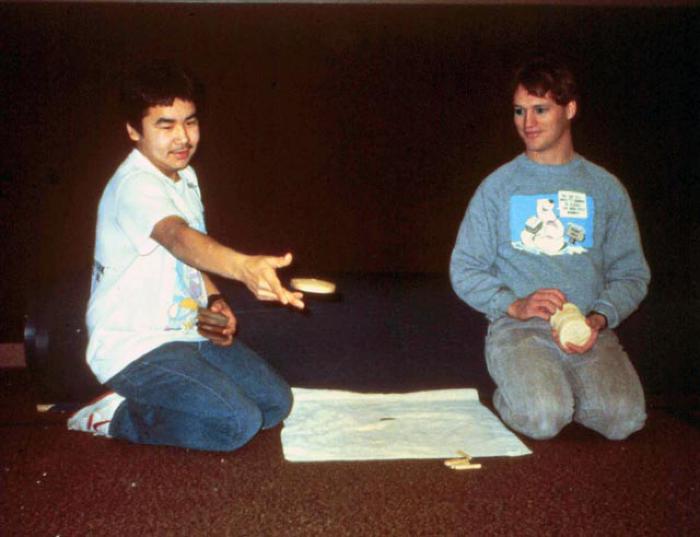Disc Game — Kakangaq

In the Alutiiq gambling game kakangaq, players throw disks at a small wooden target placed on a sealskin ten or twelve feet away. The object is to cover the target with a disk. This game can be played by two people, or by four players working in teams of two. Players take turns throwing their disks, trying to cover their opponent’s pieces or knock them away from the target. Two points are scored for covering the target, or one point for being the player who lands a disk closest to the target. Twelve points wins the game and two games make a match.
Kakangaq disks are typically made of wood, bark, bone, or ivory. Sets were once carved with different symbols in the top to distinguish the pieces tossed by different players. A crescent, a dot, an X, a notch, or even a carved human face might indicate a set of pieces. Disks were carved in a variety of shapes and ranged from very large pieces the size of a dinner plate to palm-sized tokens. Some were weighted with pebbles, and miniature sets were carved for children.
This popular game is centuries old. Russian fur traders who visited Alutiiq communities described kakangaq in their journals, and archaeologists find gaming disks in sites up to five hundred years old. In classical Alutiiq society, throwing games were part of annual hunting ceremonies held each winter to honor animal spirits and ensure future prosperity. Men played vigorously, often betting valuable equipment on their matches. Today the game is enjoyed by people of all ages.
